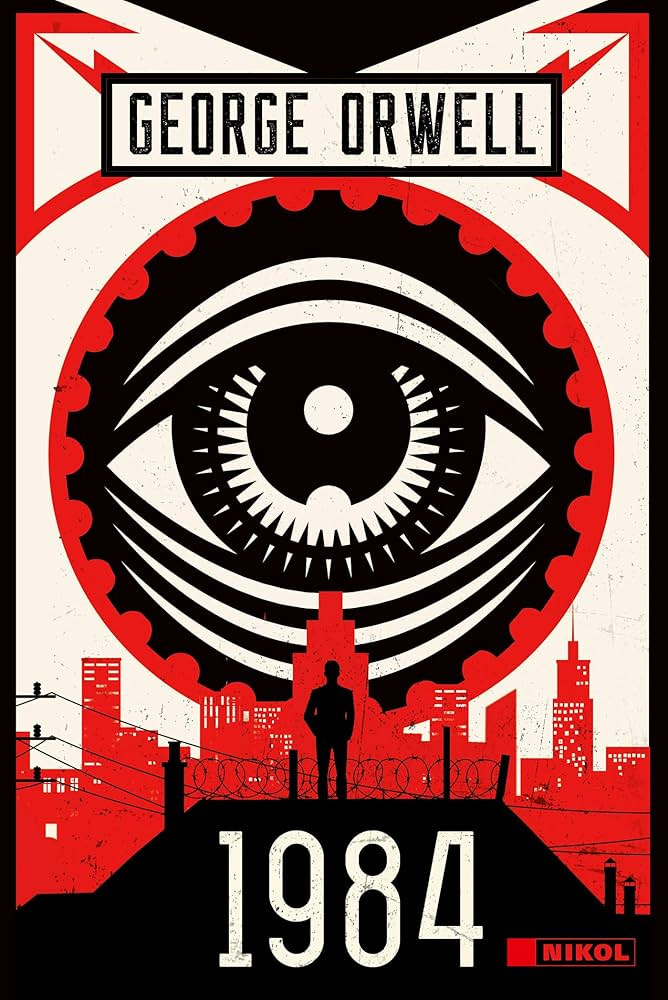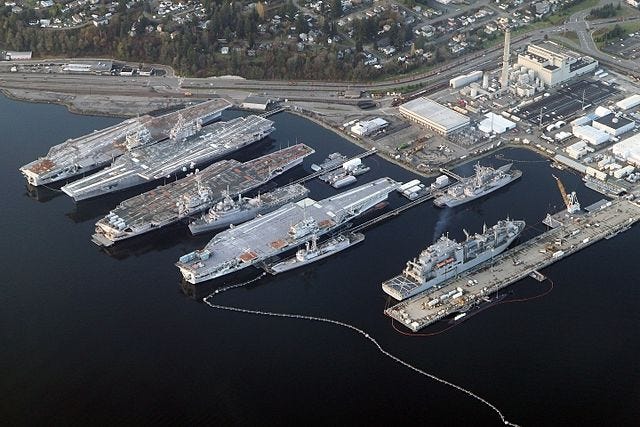War has been on my mind recently. There's the genocide in Gaza, almost one year old now. The European Union's Defense Commissioner Andrius Kubilius just said that the EU should prepare for a hot war with Russia in the next 6-8 years. Also, Admiral Lisa Franchetti, US Chief of Naval Operations just unveiled plans for war with China by 2027 (big thanks to Caitlin Johnstone for her Substack post on the subject). So it goes, the US war machine relentlessly cranks on .
But before we all succumb to either a massive atomic blast or the ensuing nuclear winter, I would like to share a passage from George Orwell's 1984, recently suggested by a commenter. I found it quite profound. This version is lightly edited for time... please visit my Substack for the full text.
1984 Book 2, Chapter 9:
The primary aim of modern warfare is to use up the products of the machine without raising the general standard of living.
Ever since the end of the nineteenth century, the problem of what to do with the surplus of consumption goods has been latent in industrial society. From the moment when the machine first made its appearance it was clear to all thinking people that the need for human drudgery, and therefore to a great extent for human inequality, had disappeared. If the machine were used deliberately for that end, hunger, overwork, dirt, illiteracy, and disease could be eliminated within a few generations. And in fact, without being used for any such purpose, but by a sort of automatic process — by producing wealth which it was sometimes impossible not to distribute — the machine did raise the living standards of the average human being very greatly over a period of about fifty years at the end of the nineteenth and the beginning of the twentieth centuries.
But it was also clear that an all-round increase in wealth threatened the destruction — indeed, in some sense was the destruction — of a hierarchical society. In a world in which everyone worked short hours, had enough to eat, lived in a house with a bathroom and a refrigerator, and possessed a motor-car or even an aeroplane, the most obvious and perhaps the most important form of inequality would already have disappeared. If it once became general, wealth would confer no distinction. It was possible, no doubt, to imagine a society in which wealth, in the sense of personal possessions and luxuries, should be evenly distributed, while power remained in the hands of a small privileged caste.
But in practice such a society could not long remain stable.
For if leisure and security were enjoyed by all alike, the great mass of human beings who are normally stupefied by poverty would become literate and would learn to think for themselves; and when once they had done this, they would sooner or later realize that the privileged minority had no function, and they would sweep it away.
In the long run, a hierarchical society was only possible on a basis of poverty and ignorance.
To return to the agricultural past, as some thinkers about the beginning of the twentieth century dreamed of doing, was not a practicable solution. It conflicted with the tendency towards mechanization which had become quasi-instinctive throughout almost the whole world, and moreover, any country which remained industrially backward was helpless in a military sense and was bound to be dominated, directly or indirectly, by its more advanced rivals.
Nor was it a satisfactory solution to keep the masses in poverty by restricting the output of goods.
…
The problem was how to keep the wheels of industry turning without increasing the real wealth of the world. Goods must be produced, but they must not be distributed. And in practice the only way of achieving this was by continuous warfare.
The essential act of war is destruction, not necessarily of human lives, but of the products of human labour.
War is a way of shattering to pieces, or pouring into the stratosphere, or sinking in the depths of the sea, materials which might otherwise be used to make the masses too comfortable, and hence, in the long run, too intelligent.
Even when weapons of war are not actually destroyed, their manufacture is still a convenient way of expending labour power without producing anything that can be consumed. A Floating Fortress, for example, has locked up in it the labour that would build several hundred cargo-ships. Ultimately it is scrapped as obsolete, never having brought any material benefit to anybody, and with further enormous labours another Floating Fortress is built.
In principle the war effort is always so planned as to eat up any surplus that might exist after meeting the bare needs of the population. In practice the needs of the population are always underestimated, with the result that there is a chronic shortage of half the necessities of life; but this is looked on as an advantage.
It is deliberate policy to keep even the favoured groups somewhere near the brink of hardship, because a general state of scarcity increases the importance of small privileges and thus magnifies the distinction between one group and another.
…
And at the same time the consciousness of being at war, and therefore in danger, makes the handing-over of all power to a small caste seem the natural, unavoidable condition of survival...
...
...war is waged by each ruling group against its own subjects, and the object of the war is not to make or prevent conquests of territory, but to keep the structure of society intact.”
I still think War is a Racket... please check that series out as well as my continuing series on the War in Vietnam for more antiwar material.
Let's make them pay.

















Share this post